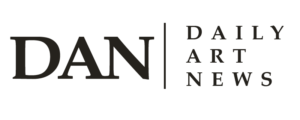During autumn 2022, Index Foundation, together with the Royal Institute of Art in Stockholm, hosts three situations presenting artistic research projects being conducted at the school: Melanie Gilligan, Films Against Capitalism; Annika Larsson, Non-Knowledge, Laughter & The Moving Image; and Kajsa Dahlberg, The Tidal Zone.
Petra Bauer, Head of Department for Research and Further Education in Architecture and Fine Art, describes: “Artistic research allows us to, at the same time, explore materialities and the role of imagination in deepening our knowledge and finding new approaches to the world. In the three research projects, it is specifically the role of moving images in creating alternative imaginaries that is in focus.”
Index maintains close dialogues with academic institutions in Sweden and internationally to develop ways in which research can be exhibited. Director of Index, Marti Manen states: “Artistic research questions temporalities, assumed narratives and ways of doing. Art institutions are spaces for experimentation, freedom of expression and sharing knowledge. A collective and generous dialogue between academia and art institutions is more than necessary in our present times.”
The Common Sense, Parts-wholes, The Bay Area Protests, Crowds, Home Together, and Health as Individual vs. Health as Social are among the six film projects that Melanie Gilligan exhibits in the exhibition Films Against Capitalism (November 3–13). In her video works, Gilligan draws attention to the often-overlooked effects of capitalism on vulnerable groups, including older people and workers on fixed incomes, as well as to political situations like police and state violence. Gilligan charts the evolution of her work through the making of the movies, switching from a closed-set method (The Common Sense) to blending fiction and reality to depict common political contexts (Crowds); this enables a more direct focus on monetary and social institutions. In association with Lund University and Stockholm University of the Arts, Melanie Gilligan is a PhD candidate at the Royal Institute of Art. On November 9, a public defense will be place at the Royal Institute of Art.
Non-Knowledge, Laughter & The Moving Picture, a two-day seminar by Annika Larsson, will be held at Index (November 15–16). It will examine how the moving image and the laughing body (both human and non-human) have the power to deviate from our routine and alter the established order of events. Larsson offers the example of laughter to show how it may unexpectedly enter a situation and throw one off course. In order to show what moving images and bodies can achieve and how they can teach us about the limitations of our thinking, the project investigates methods in which humans, creatures, bodies, technology, and environments, communicate beyond instrumental language, subjectivity, and reason. The Swedish Research Council is funding Annika Larsson’s artistic research project, which she is working on in association with the Royal Institute of Art and HFBK Hamburg.
The Tidal Zone, an exhibition including contemporary works by Kajsa Dahlberg (November 23–January 29, 2023). Her practice-based research focuses on the connections between seaweed and the history of photography as it explores film as a tool entangled with non-human patterns of life. In order to interact with cinema as an intertidal medium capable of holding a reciprocal relationship to the world—of being in touch—Dahlberg invokes, among others, Jean Epstein and Ulla Ryum throughout the four pieces in the exhibition. This eventually includes the manner in which our bodies turn into environmental registers, similar to shapeshifting. When do our sensitivity and intensity become assets that enable us to perceive the world as livable and animate? Kajsa Dahlberg is a PhD candidate at the Royal Institute of Art in collaboration with Lund University.
Since 1735, the Royal Institute of Art has trained architects and artists. It is the largest artistically based higher education institution for fine art and architecture in Sweden. The Royal Institute of Art offers education through its faculty, which includes influential Swedish and foreign artists, theorists, and architects. As a result, alumni and current students are recognized on a national and international level.
Index – The Swedish Contemporary Art Foundation has been operating as a foundation for close to 25 years. It uses exhibitions, research projects, and educational initiatives to promote ongoing and innovative conversations between the institution, artists, and audiences.


